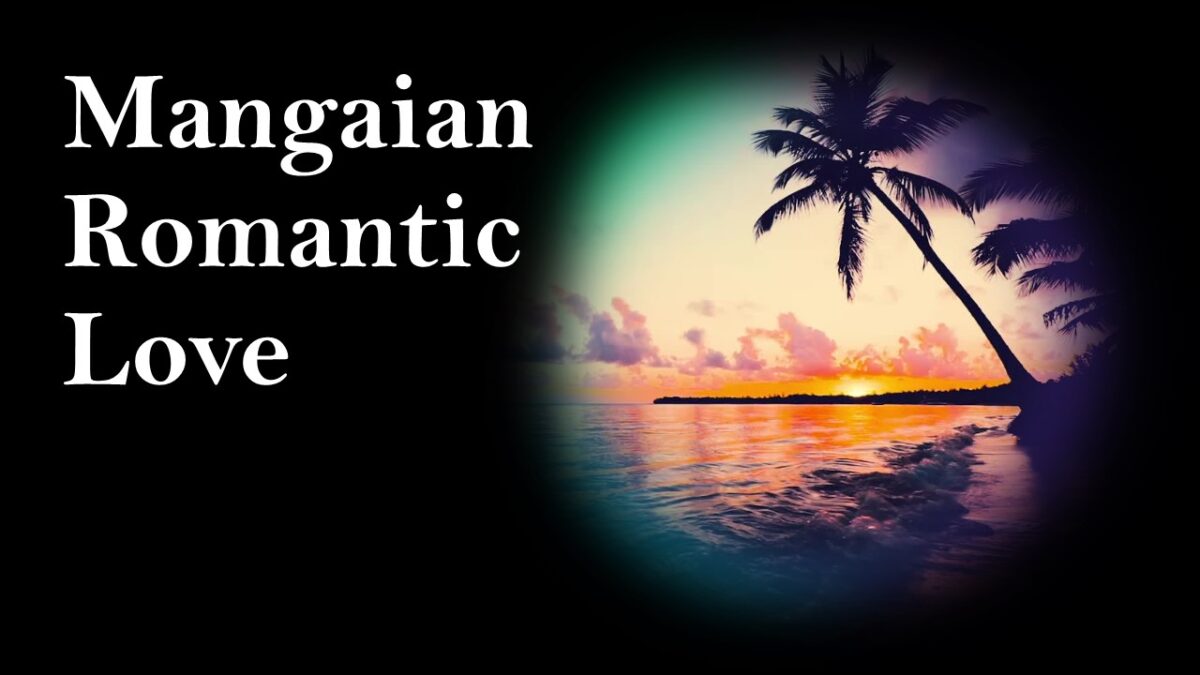Early anthropological studies portrayed the sexual culture of Polynesian love. Those studies downplayed the love and emotions of indigenous people in the South Seas. For example, the cultural anthropology of Mangaian love presented the freedom of sexual intimacy and love among Mangaian people of Polynesia.
Later anthropological studies of the 20th century, as I noted in another article, showed that Polynesian women’s and men’s emotional experiences demonstrated that their feelings and relationships were romantic, according to the Western concept of romantic love (Karandashev, 2017, 2019).
Six Things Make Mangaian Love Romantic
Anthropological studies of the 1980s and 1990s showed that romantic love was present in Polynesian cultures (see Jankowiak, ed., 1995), in particular in the Mangaian culture (e.g., Harris, 1995). The word “inangaro” (loving and liking) comes in different forms and contexts, and it is used in many ways, which conveys several core meanings of romantic love.
In other articles, I explained the six key things that made Polynesian love in Mangaia “romantic.” These were
- (1) intrusive thinking about the partner,
- (2) a romantic perception of the beloved as an exceptional person,
- (3) a romantic idealization of the partner and the relationship,
- (4) a reordering of motivational hierarchies,
- (5) emotional dependency in romantic love, and
- (6) care and concern for the other.
See more about these in:
Three Things Make Mangaian Love “Romantic”, and
Three Other Things That Make Mangaian Love Romantic
What Is Culturally Special about Mangaian Love?
In the 1980s, an extensive anthropological field study revealed culturally specific characteristics of Mangaian romantic love. Cultural anthropologists proposed that the Mangaian pattern of heterosexual romantic love differs from the American model of romantic love in its emphasis on specific features of love. The significant differences between these two cultural models of love are in the relative weighting of those features (e.g., Harris, 1995).
The Mangaian cultural model of romantic love is different in many ways from the American model of romantic love
Open Expression of Sexual Love
The two cultural models have different patterns of sexual attitudes and sexual relations. In particular, the Polynesian pattern emphasizes sexual expressiveness while the American pattern minimizes sexual expressiveness.
Polynesian cultures perceive free and open sexual expressions and behaviors as common and central features of sexual relationships and love.
Love Emerges Involuntarily “From the Bowels”
Women and men understand the Mangaian word “inangaro”, with its flexible denotation as “wanting, needing, liking, or loving,” in its specific meaning in the context of heterosexual relationships. It conveys the meaning of “the real love from within, the feeling inside you, from your heart, for someone.” More specifically, love is an involuntary emotional feeling that emerges “from the heart”, even though it literally means “comes from the bowels”. Mangaians believe that the inangaro is “not a choice, but suddenly it is a feeling” that overwhelms a person. Such an involuntary process as falling in love can have both positive and negative consequences. For instance, sometimes relationships that should have been were not because “that feeling” just wasn’t there.
Let us look at one case of this kind,
“Ani was energetically courted by a “good and loving” man who wanted to marry her but for whom she did not feel inangaro. Instead, she fell in love with a man who turned out to be unfaithful to her after they were married, causing her considerable unhappiness. As she reflected on her life, Ani regretted not being able to love her first suitor, who, in hindsight, would have been a better spouse.”
(Harris, 1995, p.121).
Physical Beauty Is a Powerful Force of Love
Mangaians understand that physical beauty is a powerful driving force of love in heterosexual relationships. Mangaians, like other Polynesians, have a great appreciation for the aesthetics of the human body. They believe that the human physique is the vital trigger of passionate love.
The Mangaian cultural standards of sexual beauty, however, are substantially different from western conventions of physical attractiveness. Different physical features ignite Polynesian love.
For many Mangaians, love at first sight prevails in their culture. The decisive role of physical beauty and the idea of love as an involuntary process are crucial in this regard. Here is an example of how Mangaians described their experiences of sudden and intense attraction to a person they had just met (Harris, 1995, p.122):
“I was in the shop buying some food and I turned and saw him. I got a feeling inside me that I had never felt before with anyone. I had already had a boyfriend and a baby and other boys had come around too. But when I saw this man, I wished that he would be my husband, and this feeling was a surprise because I had never seen him before. Although I had that feeling, I didn’t expect that the feeling would come true.”
Mangaian Love as Fate and Destiny
While in North America, “looks count” and “love for beauty” are important factors in falling in love (Tennov, 1979), in Mangaian culture, these factors are recognized as superficial and insubstantial foundations for a relationship (Harris, 1995).
Love and attraction derive from something more important. This is the fate of a supernatural power that is beyond a person’s control.
In American culture, people are generally ambivalent about love “at-first-sight.” They think that physical attraction cannot be the exclusive ground for a “serious” relationship, although they admit that such occurrences exist. As opposed to this, Mangaians perceive such immediate and intense reactions of attraction to a person of the opposite sex as natural when they speak about such experiences.
People in societies that are not affected by cultural discomfort and suspicion of the body are more willing to admit the power of physical attraction. They have a strong belief in “love-at-first-sight” occurrences. In Mangaia, men and women believe that the feeling of love is God’s (or nature’s) way of bringing and keeping people together (1995, p.122).
